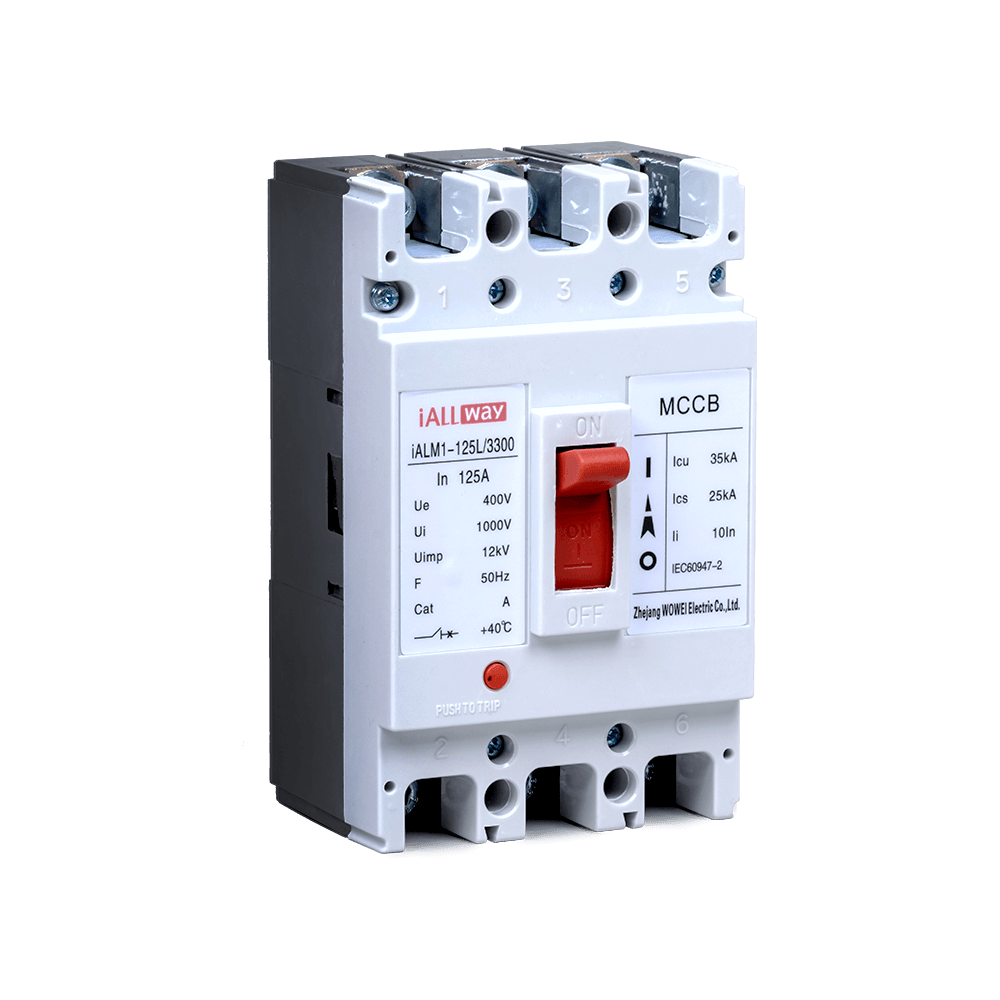Molded case circuit breakers (MCCBs) are essential protective devices in electrical systems. They provide short-circuit and overload protection for conductors and equipment. When selecting an MCCB, it is crucial to consider the current rating. This ensures the device can safely handle the expected load current.
The goal is to match the trip settings and interrupting capacity to the circuit ampacity. Several key factors guide the selection process.
MCCBs have a few key ratings to examine. These specifications should align properly with the electrical system design and components.
This states the continuous current carrying capacity under normal conditions. MCCBs can operate at 100% of their rating indefinitely without tripping. The rated current should slightly exceed the maximum steady-state current in the circuit. This avoids nuisance tripping while accounting for de-rating factors.
Also called short circuit current rating, this indicates the maximum fault current the MCCB can safely interrupt. It must equal or exceed the calculated short circuit current at the MCCB location. This rating is typically 10kA, 25kA, or 65kA. A higher interrupting capacity is needed for systems with high available fault currents.
The MCCB voltage rating must match the circuit voltage. Standard units are designed for 120V, 240V, 480V, or 600V. Custom designs can achieve higher voltage ratings. Exceeding the rating risks internal arcing faults and failure. Too low of a rating reduces the isolation and dielectric strength.
Choosing the right MCCB involves more than matching the ratings. Additional considerations include:
MCCBs must coordinate with upstream and downstream overcurrent devices. The time-current curves should complement each other to isolate faults yet ensure backup protection. Proper coordination prevents outages beyond the faulted section.
The utility transformer size and conductor lengths dictate the prospective short circuit current. A thorough fault study provides the 3-phase and line-to-ground values needed. The interrupting rating must cover these currents.
Sum up the steady-state loads on the circuit branch, including any demand factors. The total should not exceed 80% of the MCCB rating for continuous operation. This reserves capacity for inrush currents.
Compare the ampacity of the branch conductors to the MCCB rating. The device rating needs to be 125-175% of the ampacity based on NEC requirements. This protects cables from damage under overload conditions.
Where necessary, choose MCCBs with adjustable or instantaneous trip settings. This creates a cascade where devices closest to the fault open first. Downstream MCCBs avoid tripping unnecessarily.


Properly rated MCCBs are vital for electrical system protection and reliability. Matching the current rating, interrupting capacity, and voltage to the branch requirements ensures proper operation. Factors like load profiles, fault currents, and coordination also guide the selection. With careful circuit analysis and fault studies, facilities can install MCCBs that mitigate risks and minimize outages. The overall goal is safety, selectivity, and consistent power delivery to critical loads.
For comprehensive support in selecting and implementing MCCBs tailored to your system’s needs, explore the expertise and solutions offered by iALLway.

Thank you for your sharing. I am worried that I lack creative ideas. It is your article that makes me full of hope. Thank you. But, I have a question, can you help me?
Thanks for sharing. I read many of your blog posts, cool, your blog is very good.
Can you be more specific about the content of your article? After reading it, I still have some doubts. Hope you can help me.
Can you be more specific about the content of your article? After reading it, I still have some doubts. Hope you can help me.
4. Conductor Ampacity Compare the ampacity of the branch conductors to the MCCB rating. The device rating needs to be 125-175% of the ampacity based on NEC requirements. This protects cables from damage under overload conditions. Please give an example for the above. The above statement is not in aggreement with the adiabatic equation: Ib ≤ In ≤ Iz, where Ib = load current, In = MCCB rated normal current and Iz = rated conductor amapacity.
Your article helped me a lot, is there any more related content? Thanks!
Thanks for sharing. I read many of your blog posts, cool, your blog is very good.
watch our most viewed neerfit hindi sexy video on your fingertips. https://neerfit.co.in/hindi-sexy-video/
I don't think the title of your article matches the content lol. Just kidding, mainly because I had some doubts after reading the article.
Can you be more specific about the content of your article? After reading it, I still have some doubts. Hope you can help me.
Muchas gracias. ?Como puedo iniciar sesion?
Muchas gracias. ?Como puedo iniciar sesion?
Your article helped me a lot, is there any more related content? Thanks! https://accounts.binance.com/ES_la/register-person?ref=T7KCZASX
WONDERFUL Post.thanks for share..extra wait .. … https://www.smortergiremal.com/
Thank you for your shening. I am worried that I lack creative ideas. It is your enticle that makes me full of hope. Thank you. But, I have a question, can you help me?
Thank you for your sharing. I am worried that I lack creative ideas. It is your article that makes me full of hope. Thank you. But, I have a question, can you help me?
Thank you for your sharing. I am worried that I lack creative ideas. It is your article that makes me full of hope. Thank you. But, I have a question, can you help me?
Thank you for your sharing. I am worried that I lack creative ideas. It is your article that makes me full of hope. Thank you. But, I have a question, can you help me?
Thank you for your sharing. I am worried that I lack creative ideas. It is your article that makes me full of hope. Thank you. But, I have a question, can you help me?
Thanks for sharing. I read many of your blog posts, cool, your blog is very good.
Your point of view caught my eye and was very interesting. Thanks. I have a question for you.